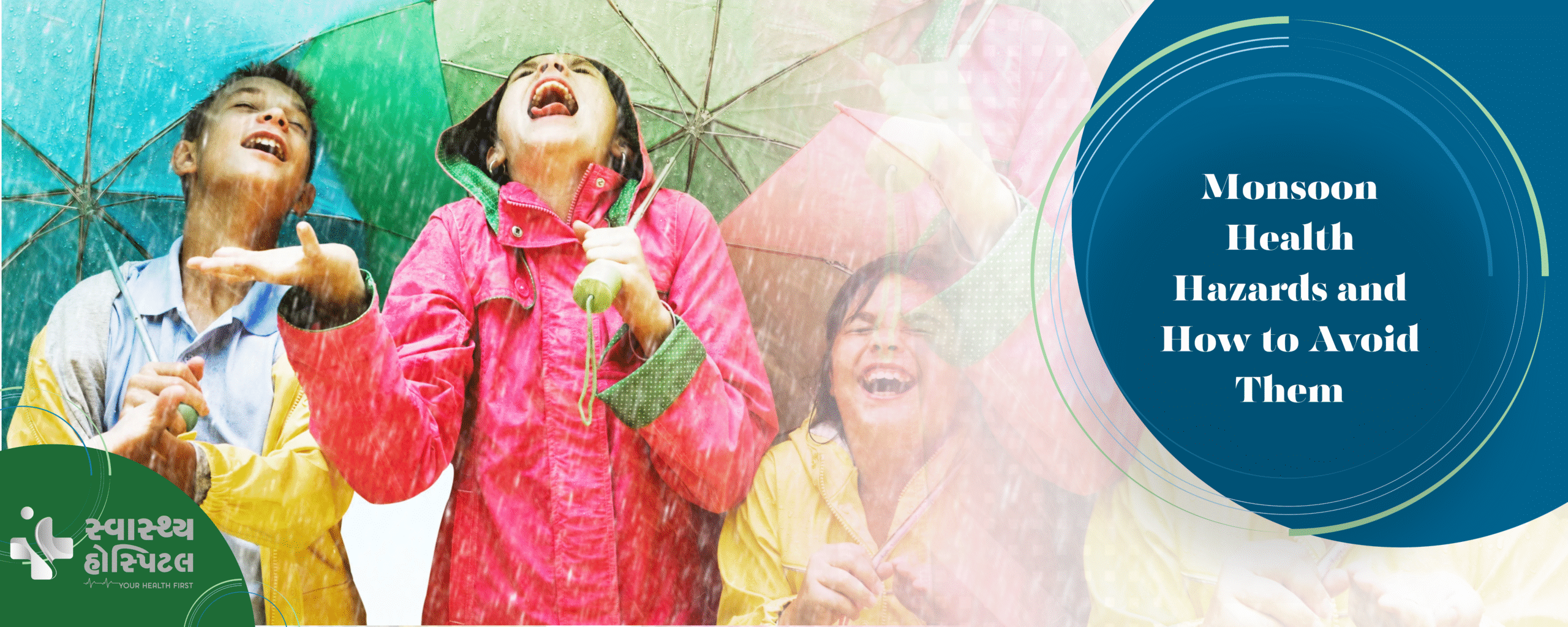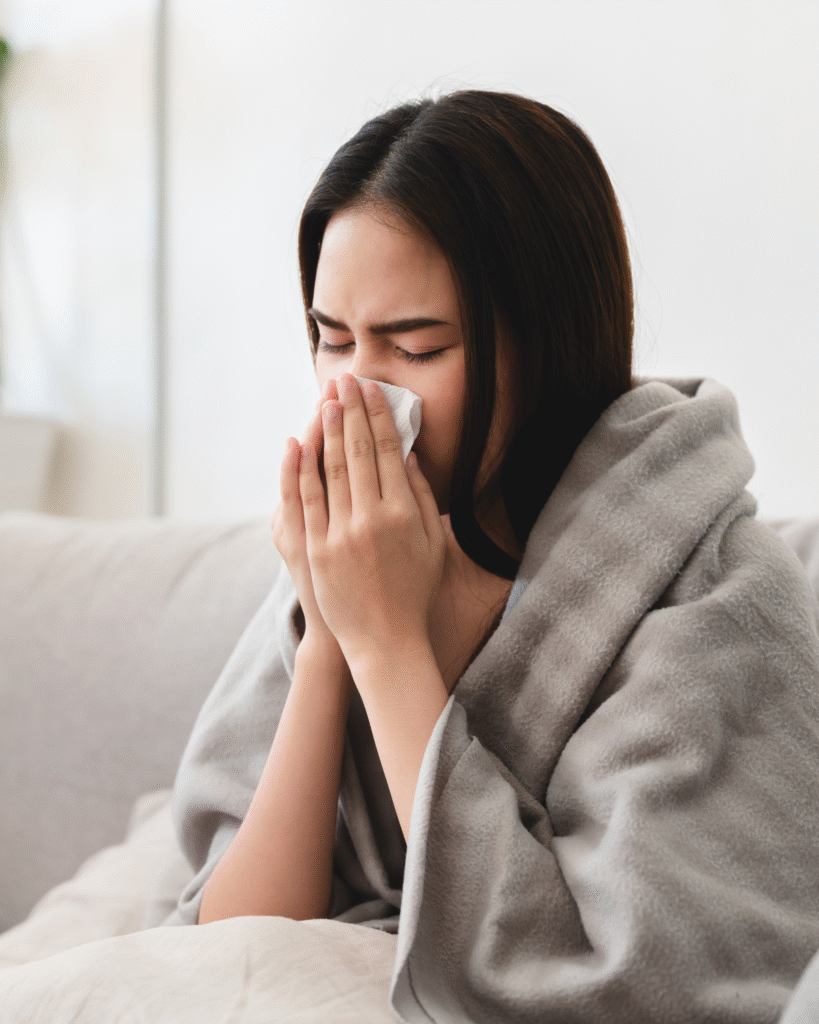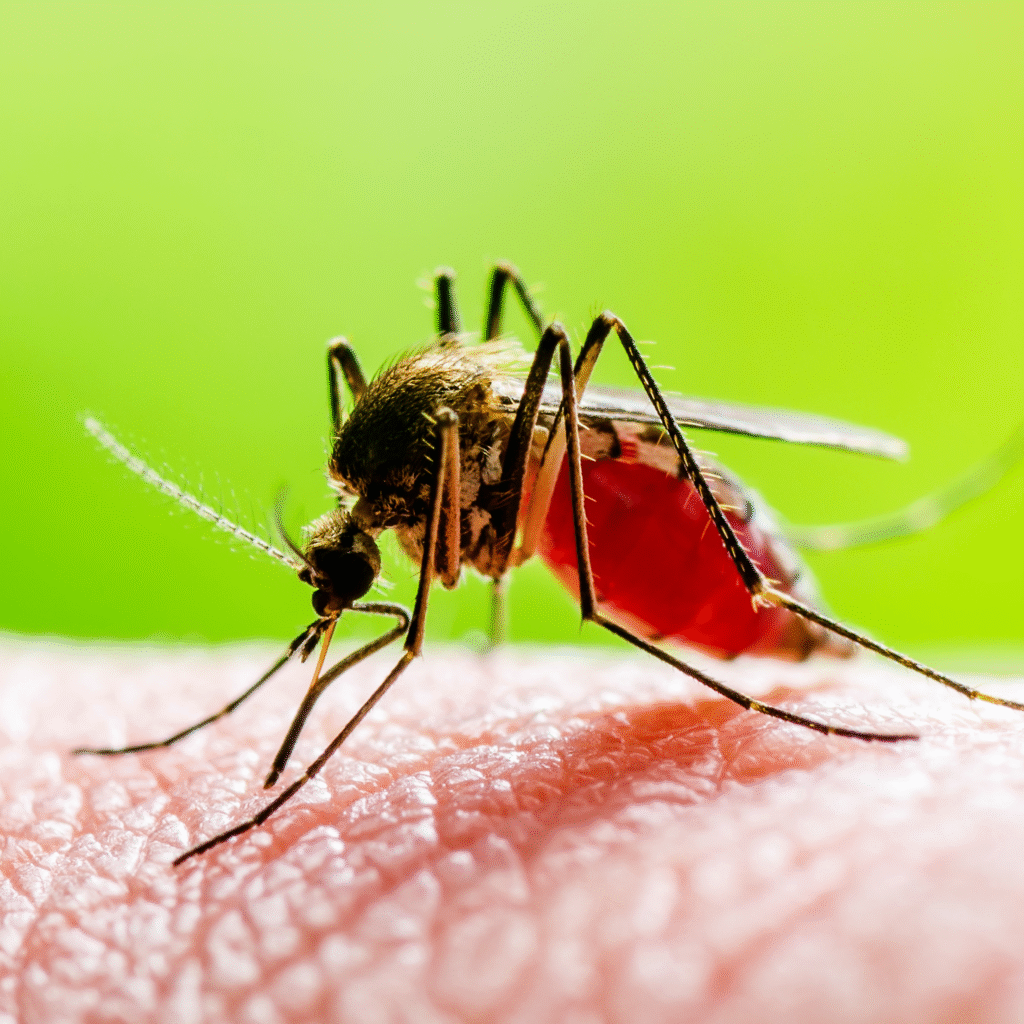
Stay Safe This Rainy Season – A Guide from Swasthya Hospital, Gandhidham
Monsoon brings much-needed relief from Kutch’s intense summer, but it also brings with it a rise in seasonal diseases. At Swasthya Hospital, Gandhidham, we see a noticeable increase in cases of fever, dengue, water-borne diseases, and complications in patients with diabetes or hypertension during the rainy season.
This blog will help you understand the common health risks during monsoon and how to protect yourself and your loved ones
Common Monsoon Health Problems in Kutch
1. Mosquito-Borne Diseases (Dengue, Malaria, Chikungunya)
- Waterlogging and stagnant water become breeding grounds for mosquitoes.
- Dengue fever can lead to dangerously low platelet counts and dehydration.
2. Water-Borne Infections (Typhoid, Cholera, Hepatitis A)
- Contaminated drinking water or food is a major concern in rural and semi-urban areas.
- These infections cause severe diarrhea, vomiting, weakness, and dehydration.
3. Seasonal Viral Fevers
- Sudden weather changes weaken immunity.
- Symptoms like cough, cold, sore throat, and fever are common.
4. Health Complications in Diabetic & Hypertensive Patients
- Infections, irregular meals, or dehydration can worsen blood sugar or BP control.
- Many patients with diabetes or hypertension require hospitalization during this season.


How to Avoid Monsoon Health Hazards
✅ 1. Drink Safe Water
- Use boiled or filtered water only.
- Avoid juices, sherbets, or cold drinks from street vendors.
✅ 2. Prevent Mosquito Breeding
- Do not allow water to accumulate in coolers, pots, old containers, tyres, or open tanks.
- Use mosquito repellents, nets, and cover your arms and legs in the evening.
✅ 3. Eat Light, Hygienic Meals
- Eat freshly prepared food; avoid stale or leftover food.
- Wash vegetables thoroughly. Avoid raw salads from outside.
✅ 4. Keep Chronic Conditions in Control
- If you are diabetic or hypertensive, monitor your sugar/BP levels regularly.
- Avoid skipping medications and consult your doctor if you have a fever, cough, cold, or unusual symptoms.
✅ 5. Maintain Personal Hygiene
- Keep hands clean with soap or sanitizer, especially before eating.
- Change wet clothes quickly to avoid skin infections and fungal rashes.
📍 Monsoon-Specific Advice for Our Kutch Community
At Swasthya Hospital, we understand the local challenges. In rural areas, water contamination is more common; in urban zones, waterlogging can lead to mosquito outbreaks. We advise all families in Gandhidham and nearby areas to:
Schedule a monsoon checkup if anyone has low immunity, diabetes, or a history of dengue.
Be alert to unexplained fatigue, persistent fever, or loose motions.
Visit the hospital without delay if elderly family members feel weak or dizzy.
❓ Frequently Asked Questions (FAQs)
Q1: How do I know if it’s just a viral fever or something serious like dengue?
If your fever is high (above 100°F) and lasts more than 2 days, especially with joint pain, rashes, or low appetite — consult your doctor immediately. It could be dengue or another viral illness.
Q2: What should diabetic patients be careful about in monsoon?
Diabetic patients should avoid sugary/stale food, keep feet dry to prevent fungal infections, and monitor blood sugar if sick or taking antibiotics.
Q3: Is home care enough for dengue?
Mild dengue can be managed at home if expert advise from doctor is followed, but low platelets or complications need hospitalization. We offer full IPD services at Swasthya Hospital.
🏥 Why Choose Swasthya Hospital, Gandhidham During Monsoon?
✔️ Expert care in Diabetes, Hypertension, Dengue & Viral Illnesses
✔️ Full In-Patient (IPD) services for observation and critical care
✔️ Trusted doctor available for urban and rural patients
✔️ Quick diagnostics and personalized treatment plans
Whether it’s a simple fever or a complex case needing hospital stay — we’re here to help.
📞 Book Your Monsoon Health Check-Up Today!
Don’t wait for symptoms to worsen. Keep yourself and your family protected.
👉 Call +91 8160710208 or
👉 Visit us at Swasthya Hospital, Gandhidham, Kutch
🩺 “Your Health First” — Every Season, Every Patient.
